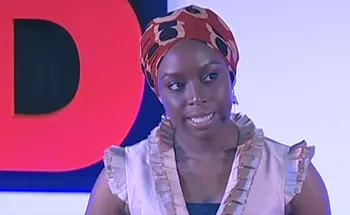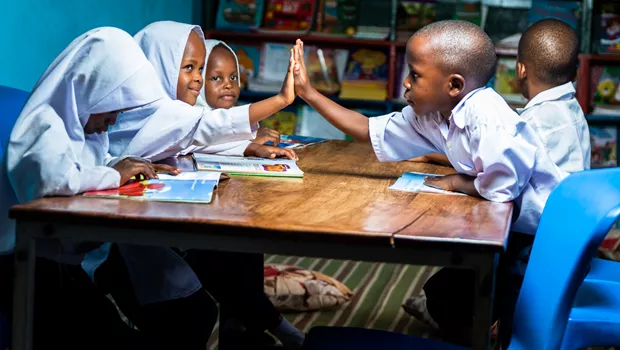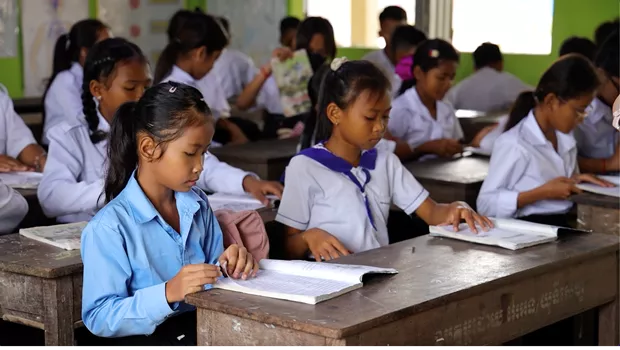Making way for all voices to be heard
Vice President, Room to Read's Literacy Program | June 12, 2020
 The Danger of a Single Story
The Danger of a Single Story
The helicopters, sirens, drums, and unidentifiable loud noises that I can hear daily from my apartment in Oakland, California, indicate that people are making their voices heard.
For so long, the story of life in America has been told by the privileged, leaving millions of people feeling unheard as the common narrative about what it means to be American does not represent their lived experiences. The echoes of these voices are reverberating globally, as oppressed and marginalized communities around the world have joined the movement to make their voices heard too.
Nigerian author, Chimamanda Ngozi Adichie, described the dangers of a single story in a TED talk: “The single story creates stereotypes, and the problem with stereotypes is not that they are untrue, but that they are incomplete. They make one story become the only story.” Being exposed to the wide variety of stories in our communities, from the very people whose lives are mirrored by them, helps us to recognize our shared humanity and build an equitable society in which all people can thrive.
Room to Read’s Literacy Program creates a path for underrepresented voices to be heard by pursuing the end of illiteracy globally. The ability to read and write facilitates self-expression and the acquisition of knowledge that empowers advocacy.
Additionally, by training authors and illustrators all over the world to create children’s books, Room to Read is ensuring that global book creators have power over their own narratives and can develop stories that reflect the lived experiences of children in their communities.
Literature is one way in which people tell their stories, and our global book collection of 1600 children’s books in 42 languages contains stories that are as diverse as the storytellers.

When young children can read diverse books, the single story is shattered, and children develop broader perspectives that foster mutual understanding in the increasingly diverse societies that we live in around the world.
In Epi’s New Friend, an Indonesian storybook by Nila Tanzil and illustrated by Nabila Adani, an Indonesian girl wants to play with her new neighbor who is a refugee from Afghanistan. Speaking different languages does not stop them from quickly connecting through the universal language of play. Eventually, their families meet to share the common custom of breaking their fast while experiencing new foods from their different cultural traditions.
Stories like this show us that the things we have in common, like the importance of family and rituals with food, can be more powerful than the things that make us different, such as where we are from and the language we speak.

In Swordfish, a Jordanian storybook written by Tamara Zeidat and illustrated by Salah Rahal, Swordfish’s pointed bill unintentionally creates a lot of trouble when she plays with Whale and Shark. After she bursts the ball, stabs Whale by mistake and unwittingly causes mayhem in an amusement park, the others do not want to play with Swordfish anymore.
One day, when Swordfish comes across Whale stuck in a hole, she puts her sharp bill to work to enlarge the hole and set Whale free. Whale and the other friends are so grateful that they invite Swordfish back into the group for a party. Swordfish is hesitant to join, worried about hurting others with her sharp bill. However, her friends have learned a lesson with which they assure Swordfish: we can all unintentionally hurt others if we are not careful. These undersea friends realize that we have common ground in having failings, and what we initially perceive as imperfections, such as Swordfish’s sharp bill, can turn out to be an asset that serves others.
Reading something as simple as a picture book can teach us insightful lessons about what it means to be human and how to relate to others with empathy, tolerance and justice. These lessons are sorely needed as, all around the world, people are raising their voices against racial inequality.
As Room to Read’s Literacy Program amplifies diverse voices, we seek to create a more inclusive view of the human experience – one that fosters mutual understanding, and ultimately plays a role in creating a more equal world.



